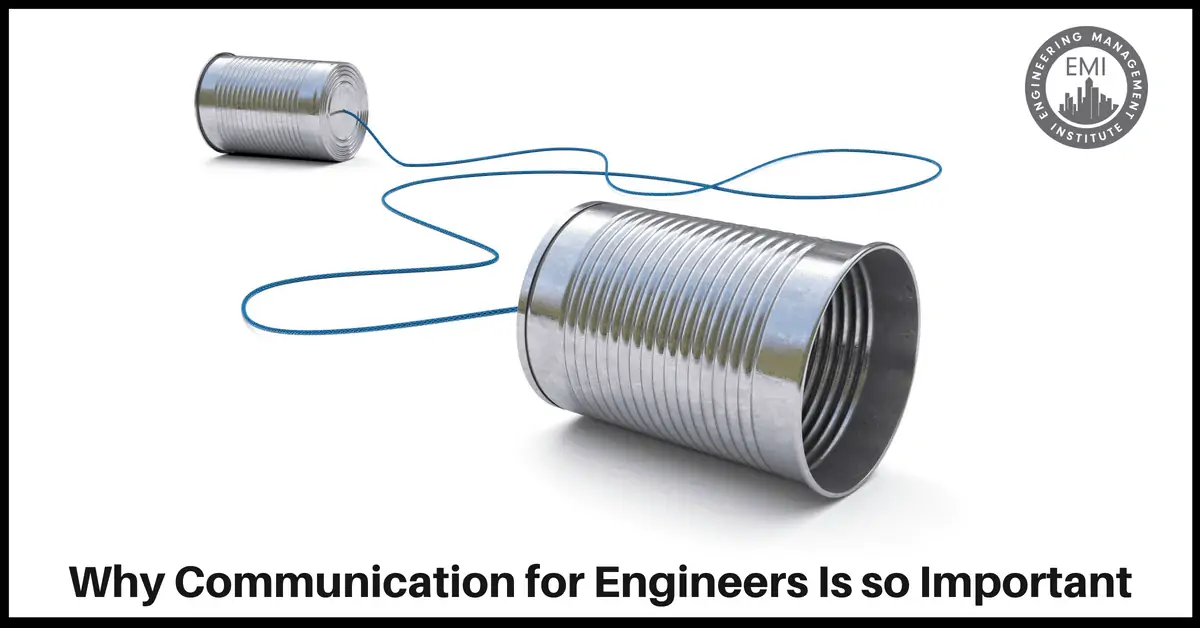Why Communication for Engineers Is so Important is a
guest blog by Thomas A. Anderson, P.E:
Do you remember the telephone game?
In school, you and your classmates tried to pick a phrase and “pass it on” by whispering it to the person next to you. Then the phrase was passed from person to person until the last person announced the phrase. How much did the phrase change during the game? As people relay message from one person to the other, the message will often be distorted.
While the game is a lot of fun. It also teaches us important lessons.
- If you do not receive information from a reliable source, you may not get the correct information. It turns into gossip.
- If you do not produce information properly, it will not be received as planned
Communication skills are vital to success in your personal life and your engineering career. Poorly delivered messages can turn into misunderstanding, frustration, or even a disaster.
By practicing communication, you will understand more of what people say. Your family, friends, and co-workers will have the confidence to come to you when they find themselves in need.
What are the keys to clear communication?
Proper Speech
When speaking, be clear and concise. Speak on important matters directly and do not allow the listeners minds wander. Make sure that you are certain they understand what you are communicating and further explain any points necessary. Do not expect someone to “know” what you are saying. Do not “ASS”ume.
Listening
A key to verbal communication for engineers is listening. Not just waiting to speak. If you want to really listen to someone, make mental notes of key points when someone is speaking to you. What you would like to say should come second to understanding. When you have a chance to speak, you can respond to the most vital issues. When others are speaking, focus on the exact words people are saying. This will help you comprehend more information and have a more successful conversation.
If you are confused, repeat what you think they said and ask if that is correct. This inspires the speaker to clarify their needs, which will help you to understand.
Consistent Communication
Great leaders practice consistent communication. Each one of us has a different approach to how you portray a vision. Find your own voice. Then practice consistency. The consistency of your approach will help your family, friends, and coworkers comprehend your information more easily.
Patience
During your communications give others time to communicate. Stay focused on what they are trying to communicate and stay open to assisting with their issues. Communication lines tend to break down where impatience gets in the way of the conversation. Every conversation you are involved in is important!
Following Up
When someone communicates an issue to you, your main priority should be to solve their problem. Following up on a problem is the only way to convince people you have listened to them and that their problems or issues are important to you as well.
Practicing consistent follow-up will leave the impression that you are involved in the bigger picture. People will learn that you are open to future communications. This makes you loyal! Others will be confident that they can rely on you.
Business Communication Success
Both written and verbal communication skills are of the utmost importance in business, especially in engineering. Communication skills boost you or your teams’ performance because they provide clear information and expectations to help manage and deliver excellent work.
- Leave open communication lines to those who need you. You can prevent small issues from turning into larger ones, by leaving open lines of communication.
- Make rules. Make sure people in your business understand what they should and should not be saying.
- Create an open-door policy. Make sure employees can talk with management at any time.
- Give feedback. Be genuinely interested in issues, comments, and concerns.
- Communicate the future. Update employees regularly about company goals and vision.
“Communication is a skill that you can learn. It is like riding a bicycle or typing. If you’re willing to work at it, you can rapidly improve the quality of every part of your life.” – Brian Tracy
About Thomas A. Anderson, P.E:
Thomas is a licensed mechanical engineer from Point Park University. He has 10 years of experience designing equipment and managing projects within the steel industry. Thomas works for Hatch in Pittsburgh, PA and belongs to the Engineer Society of Western Pennsylvania, Association for Iron and Steel Technology, and the American Society of Mechanical Engineers. He is a dedicated Toastmaster and owns his own coaching business called “Engineer Your Career” where he spends his free time helping engineers reach their career goals.
Please leave your comments, feedback or questions below that you may have in regards to communication for engineers.
To your success,
Anthony Fasano, PE, LEED AP
Engineering Management Institute
Author of Engineer Your Own Success





